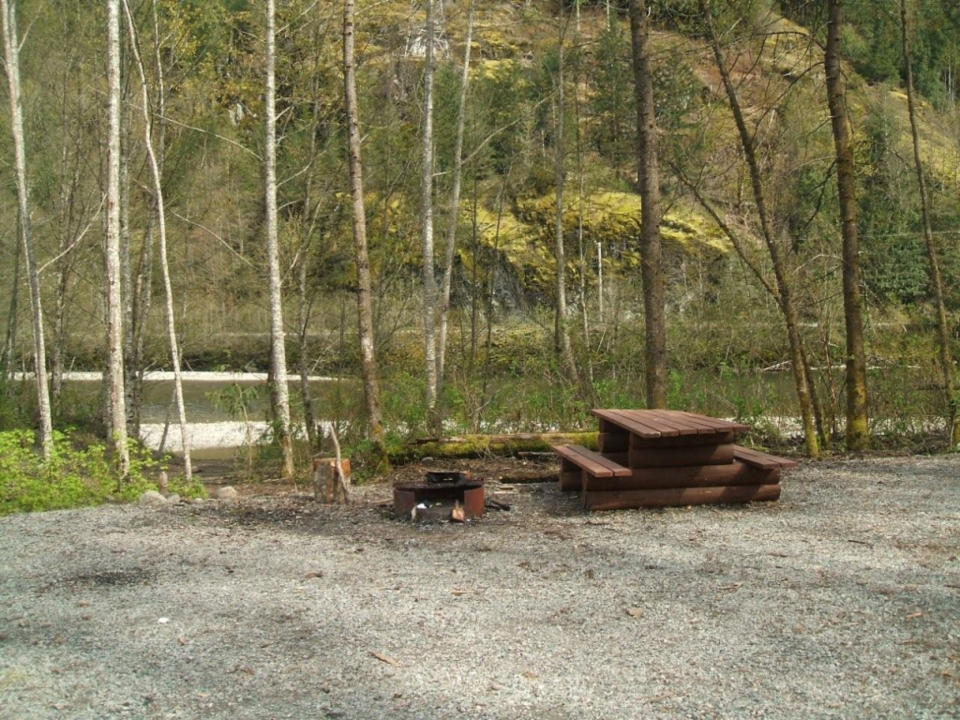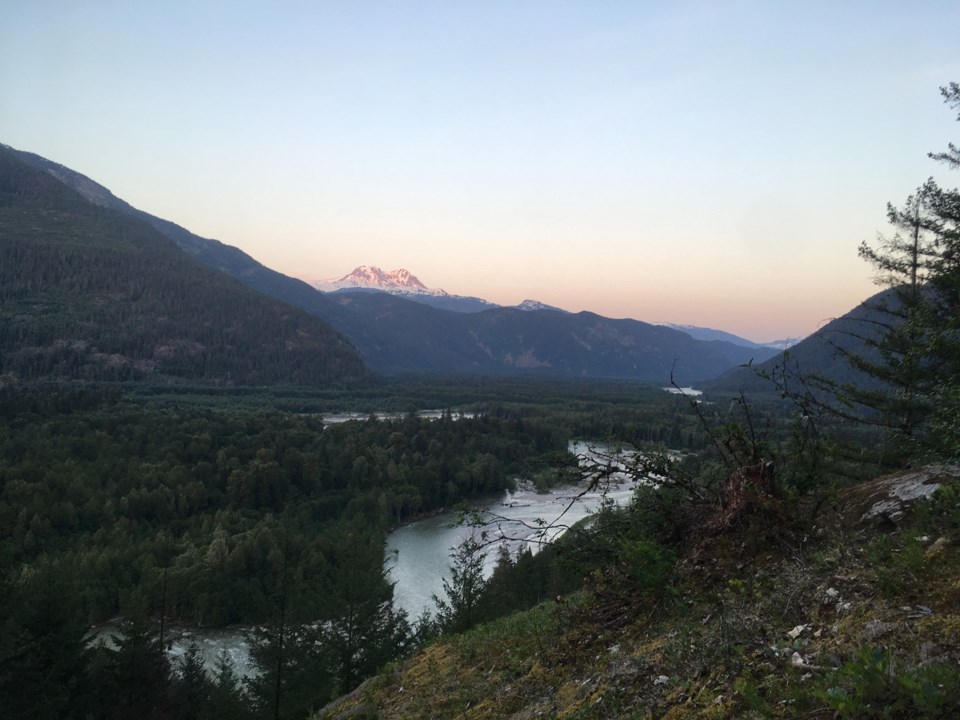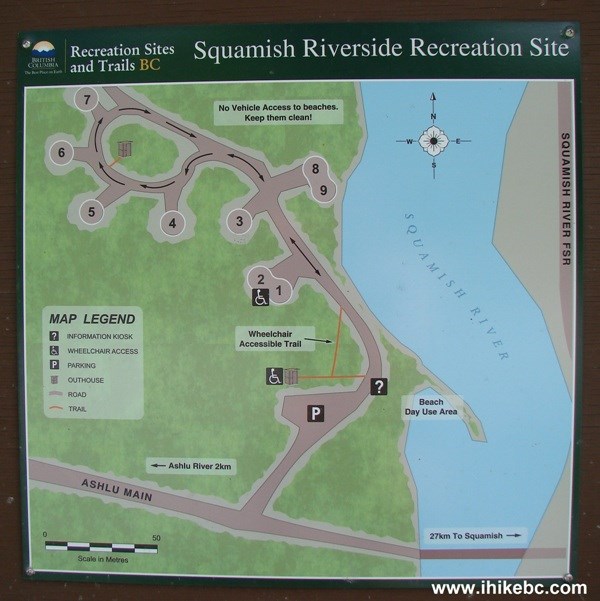Because at least one bear in the Ashlu Creek area has become habituated to human food, a campground in the area will remain closed and wildlife experts are warning campers to avoid the region all together.
Last Sunday, hiker Olena Domnina’s vehicle was broken into by a bear and her cooler full of food was taken while she was on a hike along the Ashlu Forest Service Road, but that wasn’t the first time this had occurred.
On May 10 — three days before the incident with Dominina’s SUV — the provincial Riverside Recreation Site, beside the Squamish River, was closed due to an aggressive bear, possibly the same one.
“This bear is breaking into vehicles to obtain food and should be considered dangerous. Do not approach any bears in the Riverside Area,” reads the campground’s website announcing the closure.
The Sea to Sky conservation service tells The Chief it is best if campers avoid camping along the Ashlu Forest Service Road near the Squamish River altogether, for bear and human safety.

This aggressive behaviour is learned, according to Meg Toom of WildSafeBC. A bear would not normally break into a vehicle for food unless it has been conditioned to human food, in other words.
“It has been getting garbage for sure, because people haven’t been cleaning up their sites so this is a natural progression — to ramp up the behaviour,” she said. “It is now like vehicles are becoming containers of food. They know what a cooler looks like, they know what a cooler is and that coolers aren’t bear-proof.”
A spokesperson for the Ministry of Forests, Lands & Natural Resource Operations, which is responsible for the Riverside site, tells The Chief the it will remain closed over the long May weekend and likely longer. Natural resource and conservation officers will be monitoring the area to ensure people are not camping there, said Alistair McCrone, recreation officer for the Sea to Sky Recreation District.
Without the attraction of human food — which is as enticing as desert is for people — the hope is the bear will move along.
“When there are more food resources available for it,” he said.
Currently, berries and fish aren’t plentiful. Human garbage, however, has been easy for bears to find, unfortunately, he said, even though bear warning signs are clearly posted throughout the area.
If human behaviour continues to attract the bear, it will have to be destroyed, McCrone said.
“It only takes one or two people to start a bear down a wrong path,” he said, noting approximately 130,000 people recreate in the Ashlu Creek area along the Squamish River between March and November.
To report campers at a closed site, contact the Province’s Natural Resource Violation Reporting Line at 1-877-952-7277 or #7277 on a cellphone.
Staying Safe in Bear Country
~From BC Parks
Before you go:
*Pack bear spray, and learn how to use it
*Check the park web page for any specific information about bears in the area
*Look for notices about bears in the area when you arrive at a campground or trailhead
When camping
*Ensure human and pet food, garbage, dirty camp stoves, recyclables, toiletries and all other smelly items are locked away in a metal bear-proof container provided in the park, your car or hung from a tree away from your campsite.
*Dispose of grey water in designated areas, away from your camp site.
If you encounter a bear
*Make noise. Don’t surprise a bear. Call, sing, clap or talk loudly especially near streams and in areas of low visibility. [Sea to Sky conservation officers say pots and pans work well.]
*Be alert. Watch for bears or their scat [feces] and tracks, any strange smells or disturbed vegetation. Be aware of wind direction and speed. Extra caution is warranted when the wind is facing you.
*Stay together. Hike and bike in groups and don’t let children wander. Larger groups (four or more) are less likely to have a negative bear encounter.
*Watch your pets. Keep your dog on a leash at all times. Dogs can provoke defensive bear behaviour.
*Use officially marked trails. Travel during daylight hours. Bears are most active at dawn and dusk.
*Carry bear spray and know how to use it.
In the backcountry
*Designated campsites are the best option. If there are no designated sites, choose campsites that are away from bear sign and obvious bear foods like berries, waterways or other features that may be travel routes for wildlife.
*Use a bear-proof canister Ensure food is stored safely.
*Use bear-safe food storage lockers. If there are none available, hang food by a rope system or from a tree branch in an area inaccessible to bears (at least four meters off the ground and three meters from the nearest tree).
*Consider using a bear proof canister as an alternative to hanging food.
Set up your tent, cooking area and food storage areas in a triangle pattern, about 50 m apart.
If a bear approaches you or charges:
*Do not run!
*Use your bear spray as it approaches
*Play dead or fight back
For more information go to www.env.gov.bc.ca/bcparks/explore/misc/bears/.





